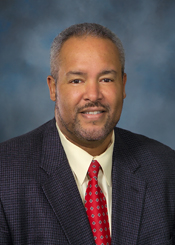 |
Rubens Pamies, M.D. |
“Because we live in a global society, it is imperative that we produce a health care workforce that reflects diversity,” said Rubens Pamies, M.D., vice chancellor for academic affairs. “Despite national efforts from the Association of American Medical Colleges, the number of doctors from underrepresented and disadvantaged groups remains static.”
Program participants will be qualified students from underrepresented minority groups as well as those from rural areas and/or educationally or economically disadvantaged backgrounds. Preference will be given to Nebraska residents. Students must have previously applied unsuccessfully to a U.S. medical school.
One major barrier to admission is science preparation. UNMC’s PMPBCP is designed to improve science and critical thinking preparation. Students accepted into the program will complete a rigorous one-year graduate studies program that includes 21 credit hours of science coursework. The goal is to increase the students’ science competitiveness as they prepare to reapply to medical school.
“We are working to bring the best and brightest students into our College of Medicine,” said Jeff Hill, M.D., professor and associate dean in the College of Medicine. “This program will train future physicians and encourage them to serve in our state’s rural and underserved communities. It also will create a great pipeline to meet the needs of an expanded medical class.”
With the opening of the new Michael F. Sorrell Center for Health Science Education this summer, the entering College of Medicine class expands from 120 to 130. The PMPBCP will accept a maximum of five students each year.
|
|
“While a high grade point average, particularly in core science courses, is critical, it does not predict the eventual success of a physician,” Dr. Pamies said. “Character, compassion and a demonstrated commitment to hard work also are important criteria to consider.”
In the spring of 2007, UNMC launched a pilot program with two students. Both are progressing satisfactorily within the program. They have been offered admission into the fall 2008 College of Medicine class contingent on satisfactory completion of their coursework and other program requirements.
If approved, UNMC will join 85 other U.S. institutions with similar pre-medical post-baccalaureate programs. These programs have shown to be successful and beneficial in improving diversity within the institution’s student body, Dr. Pamies said.
No new state funding will be sought to support the pre-medical post-baccalaureate certificate program. Resources and expenses from existing internal sources will be reallocated to support this program.